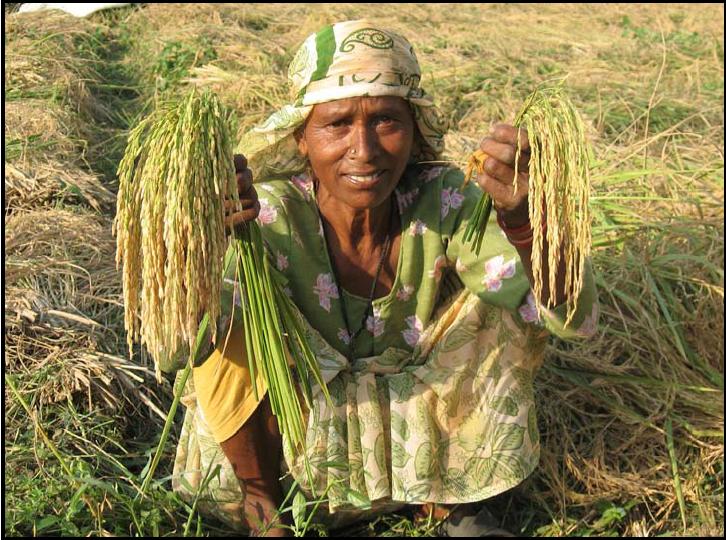/regions/political
Political
Converting calamity into opportunity - Natural resource enhancement through participatory drought relief programme - A paper by VIKSAT
Posted on 29 Aug, 2009 03:17 PMThis paper by VIKSAT presented at the Regional Workshop on Sustainable Livelihoods and Drought Management in South Asia: Issues, Alternatives and Futures at Islamabad, Pakistan from October 27-30, 2002 gives a detailed account of the approach adopted by VIKSAT in drought in Gujarat. This case study attempted to provide a set of guidelines that would be useful not only for implementationn during drought relief activities alone, but also towards drought proofing. The study found that working with people’s institutions both at village and at a regional/taluka level goes a long way in planning, implementation and tackling drought on a long term.
Drought in Andhra Pradesh - Long term impacts and adaptation strategies - A report by the World Bank
Posted on 29 Aug, 2009 03:11 PMThis report published by the World Bank consists of two volumes.
Volume 1 is divided into the following chapters:
Chapter1: Introduction
Chapter 2: Drought And Andhra Pradesh’s Economy: Historical Perspective
Chapter 3: Methodological Framework
Chapter 4: Reducing Vulnerability Of Agriculture To Drought In Eight Drought-Prone Districts
Chapter 5: Managing Economic Impact of Drought at the State Level
Chapter 6: Conclusions and recommendations
System of rice intensification in India: Innovation, history and institutional challenges (2006)
Posted on 29 Aug, 2009 03:09 PMThis report published by the WWF India and the Xavier Institute of Management, Bhubaneswar documents the history of the practice of SRI in India in the last few years and presents some of the institutional changes and challenges that SRI throws up. SRI is a fascinating case of rural innovation that has been developed outside the formal rice research establishment both in India and the rest of the world.
Experience sharing workshops on System of Rice Intensification (SRI) - A report
Posted on 29 Aug, 2009 02:55 PM This report available on the Watershed Support Services And Activities Network (WASSAN) site provides the details of three workshops organised by People's Science Institute (PSI) in October 2006 in the states of Uttarakhand and Himachal Pradesh as a first step towards sharing the experiences of System of Rice Intensification (SRI) method with the stakeholders group as well as assist the voluntary organisations in Uttarakhand and Himachal Pradesh to develop professional capabilities in the field of SRI method of paddy cultivation.
This report available on the Watershed Support Services And Activities Network (WASSAN) site provides the details of three workshops organised by People's Science Institute (PSI) in October 2006 in the states of Uttarakhand and Himachal Pradesh as a first step towards sharing the experiences of System of Rice Intensification (SRI) method with the stakeholders group as well as assist the voluntary organisations in Uttarakhand and Himachal Pradesh to develop professional capabilities in the field of SRI method of paddy cultivation.
India's experience with drought management: Changed perspectives and challenges
Posted on 29 Aug, 2009 02:43 PMThis document describes the drought situation in India over the years, the earlier perspective at drought management and the gradual change in perspective at managing droughts that evolved over the years.
The how, what, when of climate change: Background and basics
Posted on 29 Aug, 2009 02:09 PMClimate Change is a significant change in temperature, wind patterns and precipitation that occurs over a long period of time. Some of these changes occur in cycles over decades, hundreds, thousands and millions of years; some could be random occurrences.
Using water sustainably in agriculture: Increasing productivity and farm income
Posted on 29 Aug, 2009 01:29 PMAgriculture is a vital sector in India with about 60% of the population engaged in agricultural vocations and contributing to about 30% of the GDP. It consumes about 80% of water used in the country and 76% of the net irrigated area in the country is from ground water sources.
Efficiency of water use in Indian agriculture - Madras Institute of Development Studies
Posted on 29 Aug, 2009 01:10 PMThis paper by the Madras Institute for Development Studies presents estimates of the ‘consumptive use’ of water in crop production; the ratio of consumptive use to gross water utilization; and productivity per unit of consumptive use.
Arsenic contamination of irrigation water, soil and crops in Bangladesh: A paper from the UN Food and Agriculture Organisation
Posted on 29 Aug, 2009 12:53 PMArsenic contamination of irrigation water, soil and crops in Bangladesh: Risk implications for sustainable agriculture and food safety in Asia.
NREGA is making a difference to the lives of the rural poor: An article from Frontline magazine
Posted on 29 Aug, 2009 12:33 PMRead the main article: " Battle for work" by Jean Dreze and Reetika Khera.